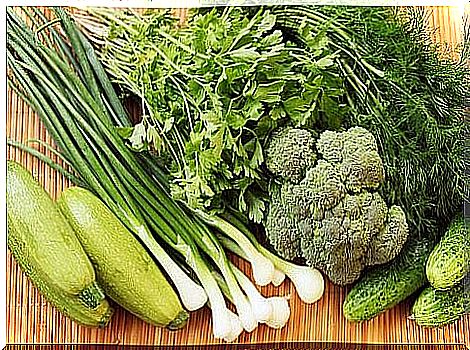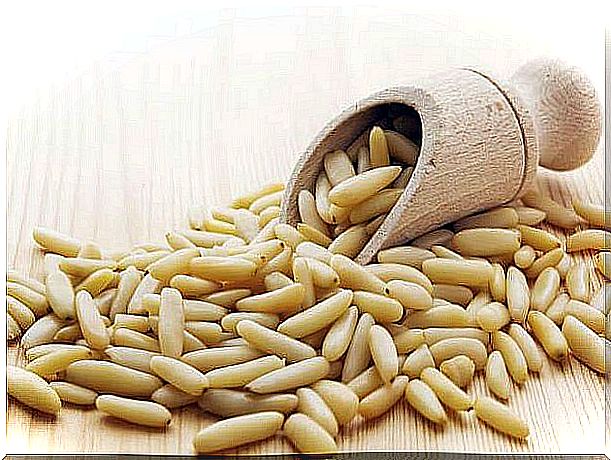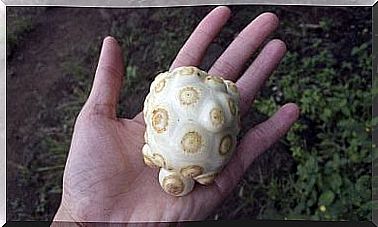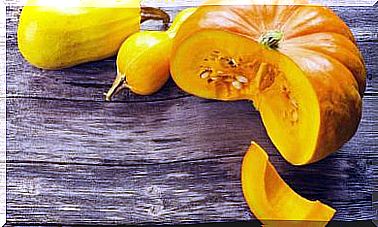Hyperthyroidism In Women, Symptoms And Recommended Foods
Hyperthyroidism is a common disease that affects the metabolic system and is characterized by abnormal production of thyroid hormones. Hormonal changes throughout life cause hyperthyroidism in women to have a higher incidence than in men.
On the other hand, as a result of this problem there are a series of consequences in our organism. Consequences that can reach a certain severity, depending on the alteration of our endocrine gland.
That is why we want to inform you a little about this disease so that you are attentive to its symptoms and so that, in case you already suffer from it, you know some simple nutritional guidelines that could be useful to you.
Symptoms of hyperthyroidism in women
Symptoms of hyperthyroidism in women can vary widely, according to the Office on Women’s Health . Most of the time they go unnoticed as they appear slowly. Sometimes we can even confuse them with other problems. The most common would be:
- Swelling in the neck (probably the most obvious symptom).
- Increased feeling of hunger
- Hair loss.
- Small mood swings and sleep problems.
- Menstrual disturbance (the period is delayed or lasts longer) and possible infertility.
- Muscle weakness and hand tremors.
- Diarrhea
- Some trouble breathing.
- Increased nervousness and hyperactivity.
- There is a very marked sensitivity to heat.
- Constant urge to urinate and excessive sweating
- Tachycardia
We have to say that it is not necessary that all these symptoms are met for hyperthyroidism to be diagnosed. Each person is a case and we all know our body to know when something that is not normal is happening. You have to be alert.
Treatment of hyperthyroidism in women

It will be our doctor who, after the respective analyzes, will diagnose whether we suffer from hyperthyroidism or not. The most common test is a simple blood sample to analyze our TSH : thyroid stimulating hormone, which will tell us if we are in an initial or more advanced phase.
We must also tell you that medicine is continually progressing. Therefore, in addition to medications such as a pill with synthetic thyroid hormone, there is the possibility of surgical intervention to solve the problem of our thyroid gland.
Diet for hyperthyroidism in women
If you are diagnosed with hyperthyroidism, your doctor will probably recommend a low iodine diet. This is because, as an article by the National Institute of Diabetes and Digestive and Kidney Diseases explains , the ingestion of large amounts of iodine could worsen the symptoms of hyperthyroidism. Next, we share with you some foods that you could include in your diet:
Vegetables of the cruciferous family

You should increase your consumption of crucifers. A good way to eat them is in a salad, but you can also cook them to your liking. These include cabbage, radish, Brussels sprouts, cauliflower, and broccoli.
Do not forget, above all, to include radish, since according to several studies it would regulate the excessive production of the hormones that cause hyperthyroidism.
Vegetables
According to nutritionists, in case of hyperthyroidism it would be advisable to consume legumes, especially these:
- Lentils
- Garbanzo beans
- Soy
- Kidney beans (beans)
Recommended seeds and nuts

It would be excellent if you introduced peanuts, millet, flax seeds and pine nuts into your diet. All of them would inhibit thyroxine production.
Raw foods and fruits
According to traditional Chinese medicine, raw foods are said to be more refreshing and have more nutrients, and they would also tend to calm our thyroids.
Hence, it is recommended that you add raw vegetables to your salads, like these:
- Peppers
- The carrot
- The spinach
- Beets
- Cabbages
Recommended plants for hyperthyroidism
These include bugleweed (Lycopus europaeus) , which is believed to inhibit the action of iodine on the thyroid. Although we have not found scientific endorsement in this regard, it is widely used in natural medicine. We could consume it as an infusion, but it is also sold in herbal stores in liquid form.
Another plant that could be taken is lemon balm to regulate the thyroid. In combination with mint, it would be more effective. You can consume up to 3 cups a day.
Forbidden foods for hyperthyroidism
Just as there are recommended foods, there are also some other products that are often discouraged in case of hyperthyroidism. Among them we could mention the following:
- Seaweed and shellfish, as they have a lot of iodine
- Iodized salt
- Garlic
- The oats
- Certain nuts (cashews, almonds, pistachios)
- The coffee
- Cinnamon and all the hot spices
In any case, the recommendation is to follow the doctor’s advice and the treatments he prescribes. Taking care of your diet is just a supplement that could help control the disease.









